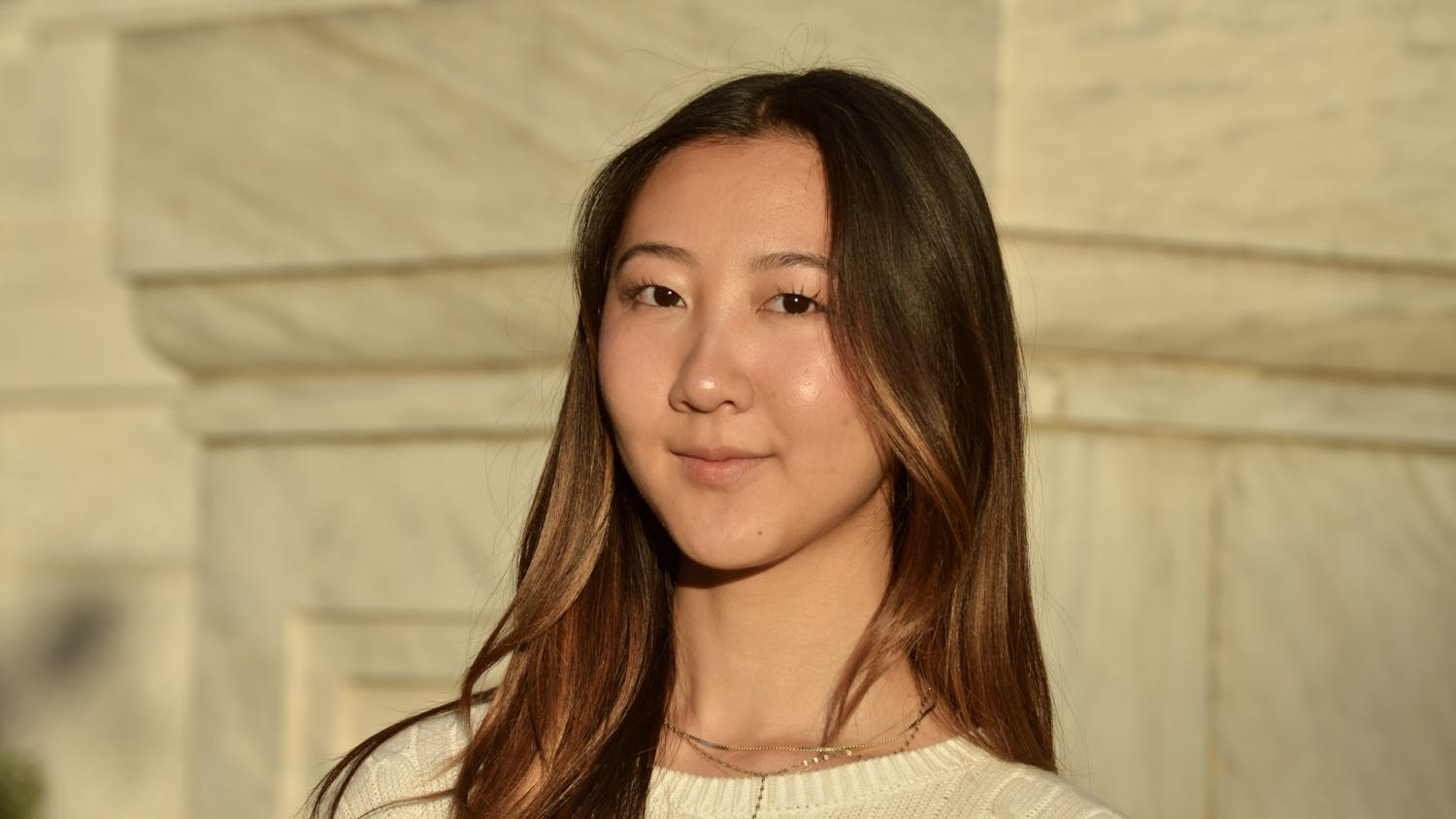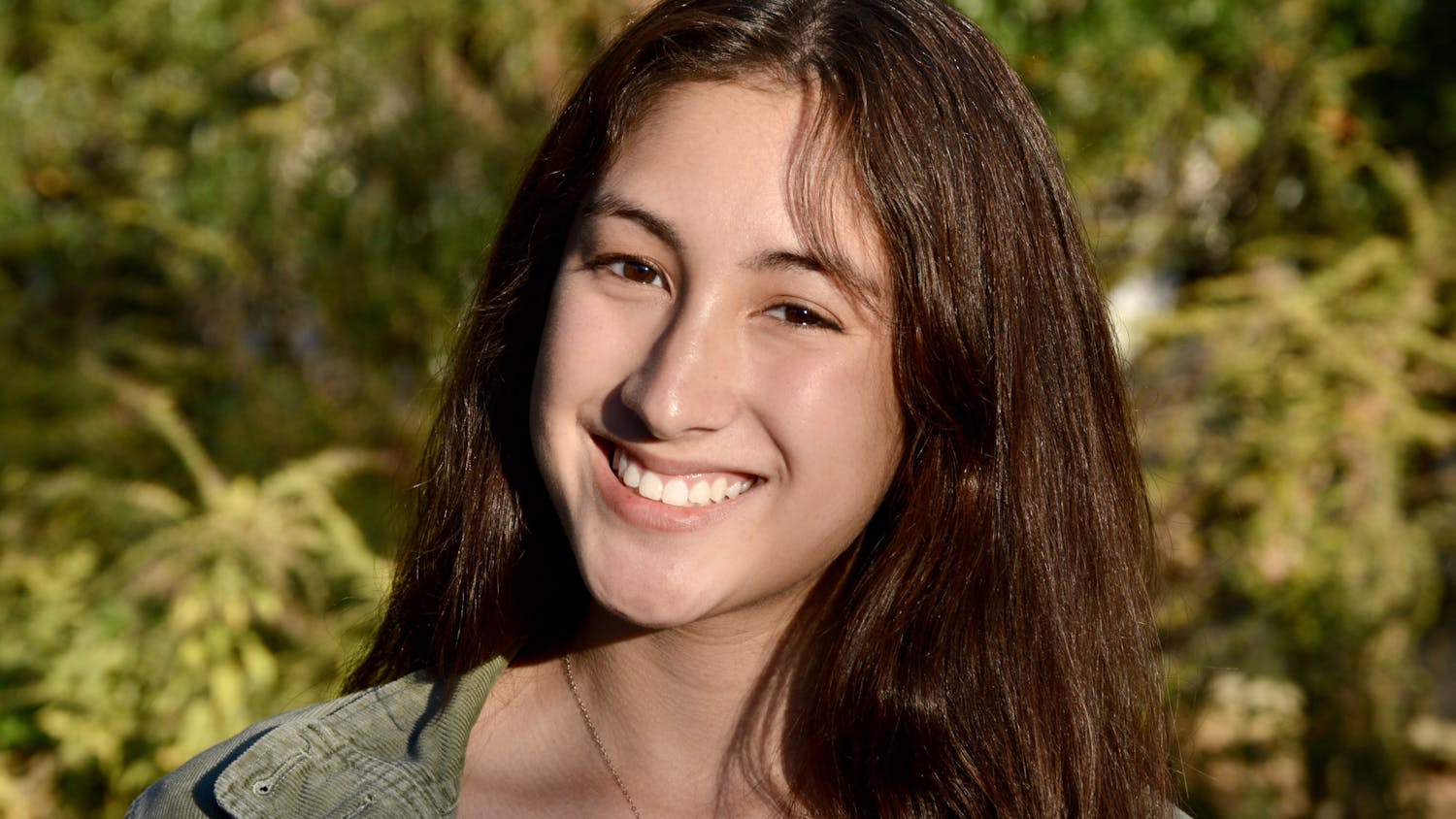Since the 2004 election, Christian groups have been viewed as a political force. People are now encouraging Democrats to talk about their faith and not let Republicans have a monopoly on morals. I think we've lost the point.
Throughout much of the country, conservatism is equated with Christianity. Many people think all Christians are Republicans and that all Republicans are Christian. This worries me because a political group is becoming the image of a faith.
The stereotype of the evangelical voter has started to define Christianity itself. People label churches red or blue based on the values the congregation focuses on. A red church may preach against abortion and gay marriage. A blue church may argue that Jesus accepted everyone and social works are the best manifestations of faith.
I'm what many would call a born-again Christian or an evangelical and I tend to be conservative. I believe abortion is wrong. I don't support gay marriage. But there are also non-Christians who believe the same things.
Those two issues do not fully represent my political opinions, even regarding moral issues. My faith gives me a broader set of values rooted in mercy and compassion. I will not support policies backed by attitudes of hatred and prejudice. Motives of greed will turn me away.
I vehemently disagree with people who bomb abortion clinics in the name of God. I think those who treat homosexuals as less than human are cruel. I vote according to what I believe is right and wrong, but I don't believe I can deal out judgment and I don't hate people because they do things I don't agree with.
Views on abortion and gay marriage are not the most important aspects of Christianity. The most important and life-changing part of this faith is the message that God loves you. He showed his love by sending his son Jesus to offer everyone an escape from a lifetime and an eternity apart from him.
I love my God more than anything. Talking about God in this way might sound crazy. To some, God seems remote and distant. Many wonder if he exists at all, or if he does, if he really cares. What gives me confidence in my faith is how it has changed me.
My parents always took me to church, but I made my own commitment to God when I was 14. I wanted to talk to God myself and figure out what the Bible says about who he is.
My life changed dramatically after I started looking at the life of Jesus and integrating my faith in God into other parts of my life. The paralyzing shyness I had faded as I realized how much God cares about me. I feel like I'm a part of something bigger than me. I don't worry as much. It's easier for me to forgive people who have hurt me.
The impact of faith on my personal life has also impacted the way I think about politics. Because God loves me, I can't hold back that love from others. If I believe that God loves everyone as much as he loves me, I can't ignore the thousands of people living in poverty and pretend they don't matter to him. I can't watch people dying due to war, AIDS and genocide and just brush it off. I don't pretend to know the best solutions to fix these problems, but I do try my best to apply my faith in practical ways.
It upsets me when I'm pigeon-holed because of a cultural perception birthed from a divisive election. I don't want people to only see the version of Christianity given by the news media. Personal experience is important. Going to a church, even to observe, can help people understand religion and religious people. As a Christian, I enjoy talking to other people about my faith and answering questions or clarifying misperceptions. I wish more people who didn't agree with my beliefs would have open and civil conversations with me.
A newspaper article or television news segment can't explain the depth of this faith. Social conservatives may have helped re-elect Bush, but Christianity is more than two wedge issues. I hope that people realize that and look deeply and more critically to discover the real foundations of faith.
April Seipp is a junior in the School of Communication, and one of the Eagle's conservative columnists.




